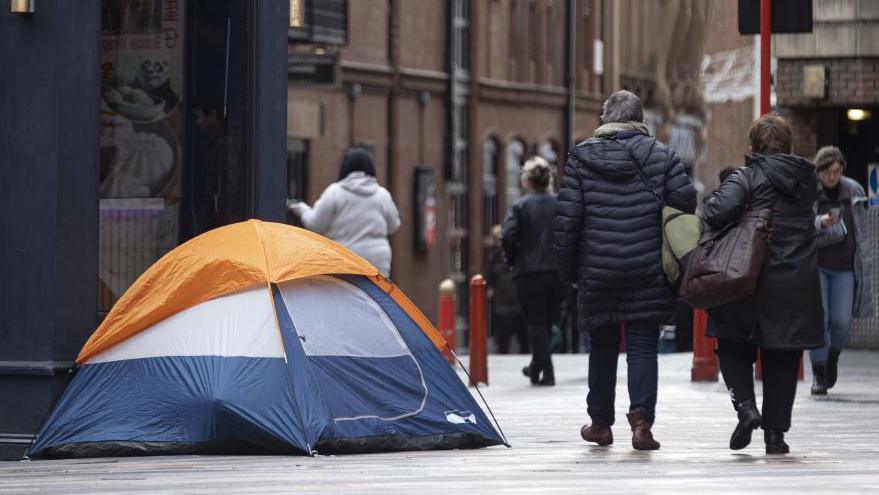Mayor's 'game changer' to end rough sleeping
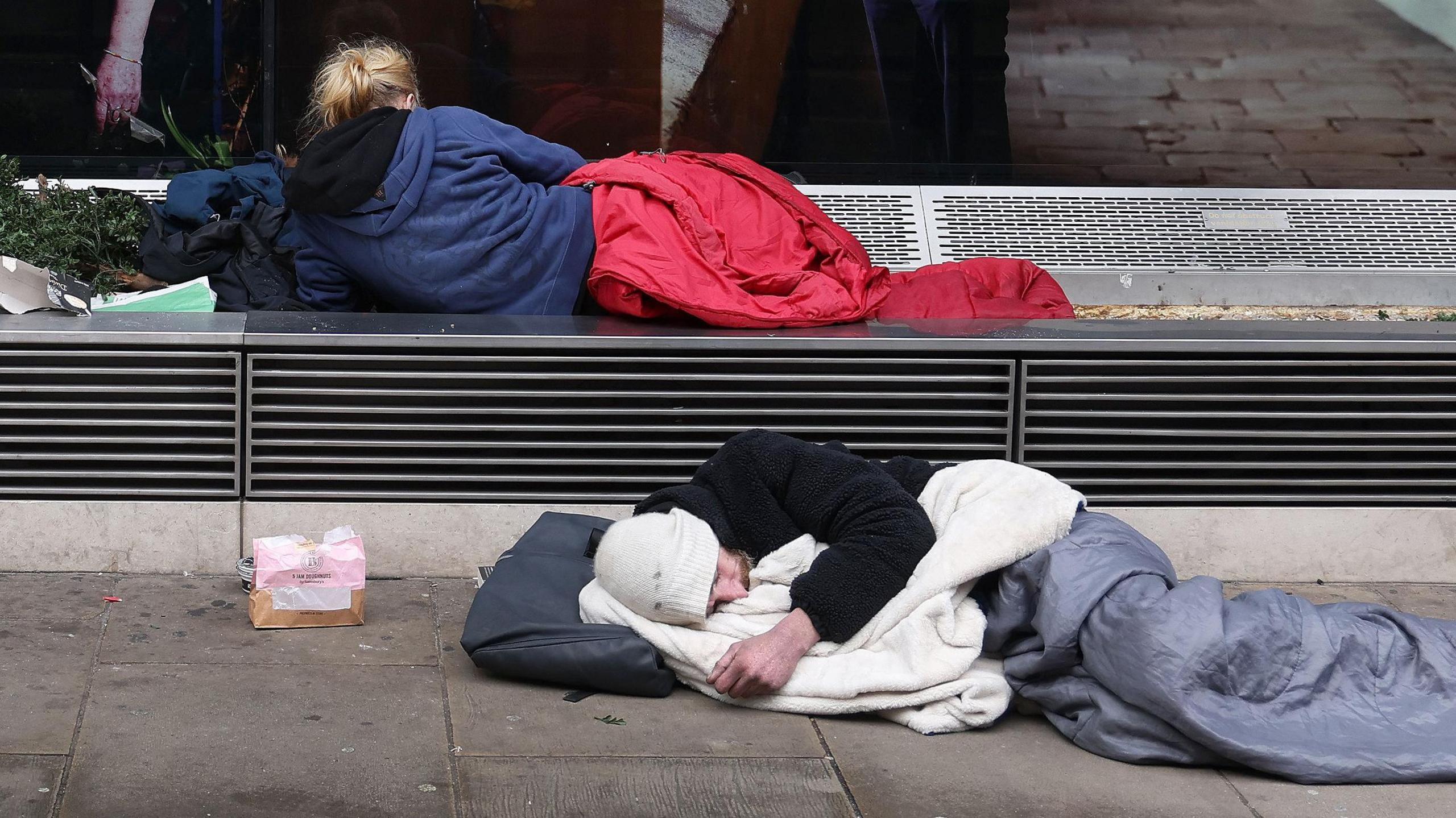
Homeless charity St Mungo's says rough sleeping is a crisis and said it "should not be a prerequisite for help"
- Published
The mayor of London has said he will end the "trauma" of people who have to be sleeping on the streets before they can access support.
He aims to ending rough sleeping by 2030, and has secured £17m in capital funding from central government for his strategy.
Sir Sadiq Khan said when a mayor works with the government, "real progress can be made, and that's the game changer".
But Lord Bailey, City Hall Conservatives' housing spokesman, said if the mayor wants to solve homelessness "that involves tackling the housing crisis, which he has failed to do - now Khan needs to force the government to do more".
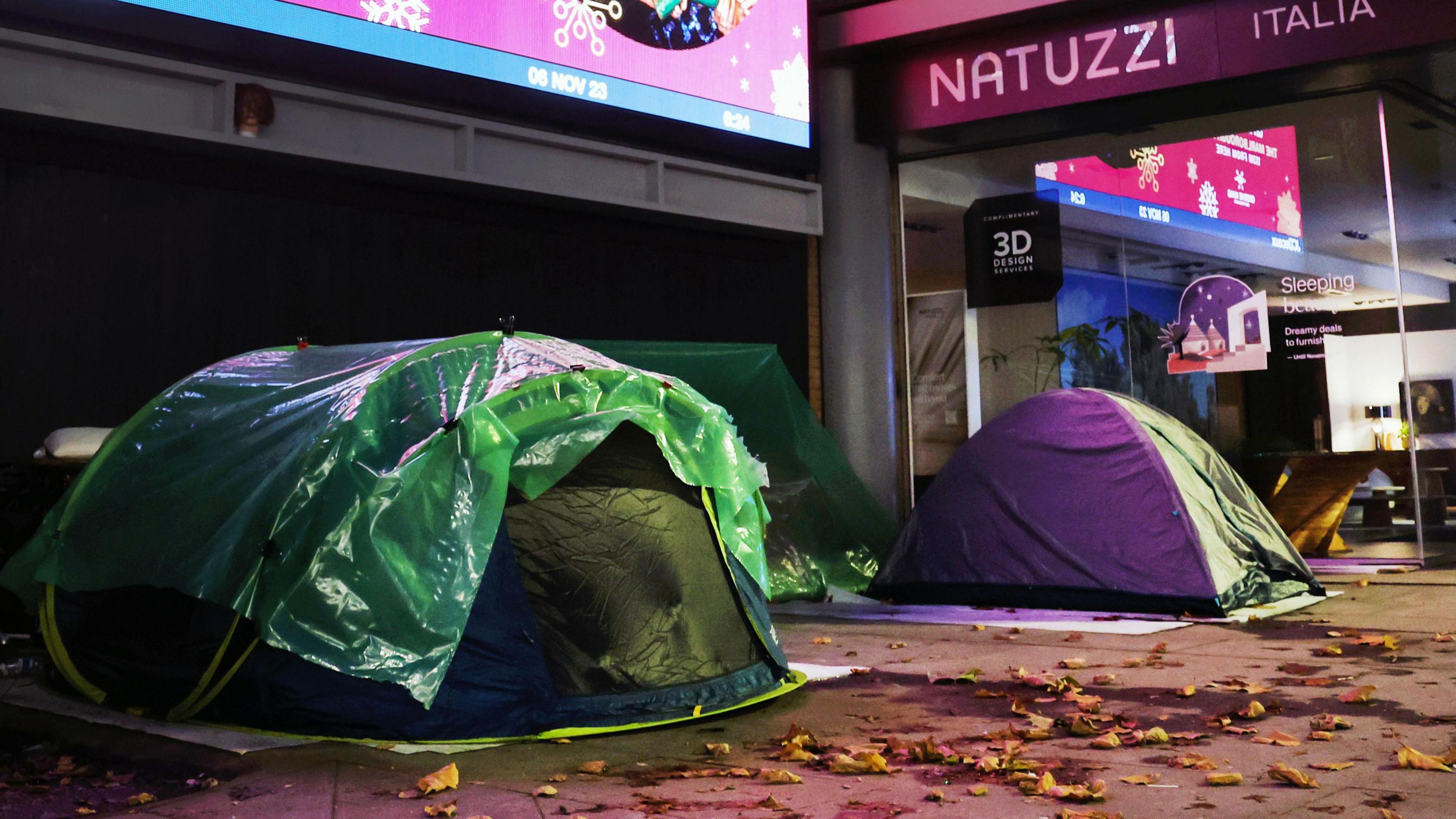
City Hall's rough sleeping budget is £44.8m in 2025/26
According to the Trust for London, external, the number of people sleeping rough in London was almost 12,000 in 2023-24.
The charity's figures show a threefold increase in people sleeping on the streets last year than in 2008-09.
Sir Sadiq told BBC London: "For the first time, we have a minister for homelessness coming with us on this journey.
"They have already announced £17m to support us in terms of this mission - on top of the record £10m I announced in January."
The government funding will be used to open a new Ending Homelessness Hub, that provide 24/7 support to those most at risk of sleeping rough, and expand the Homes off the Streets programme by refurbishing up to 500 empty homes.
The mayor said he will end the current requirement for Londoners to be seen sleeping on the streets before they can access support, and to ensure that those at greatest risk of rough sleeping are helped early, based on their specific needs.
City Hall's rough sleeping budget is £44.8m in 2025-26, a fivefold increase on 2016 when the mayor took office.
Challenged on a recent announcement that the mayor and the government agreed a cut of more than 6,000 homes to the affordable homes programme, Sir Sadiq said it was a "consequence of the previous government's [actions]".
"The consequences of interest rates and construction costs going high. The consequences of a hard Brexit, the consequences of the delay caused by building safety."
He added that over the past nine years "we've taken off the streets of our city more people than ever before, more than 18,000".
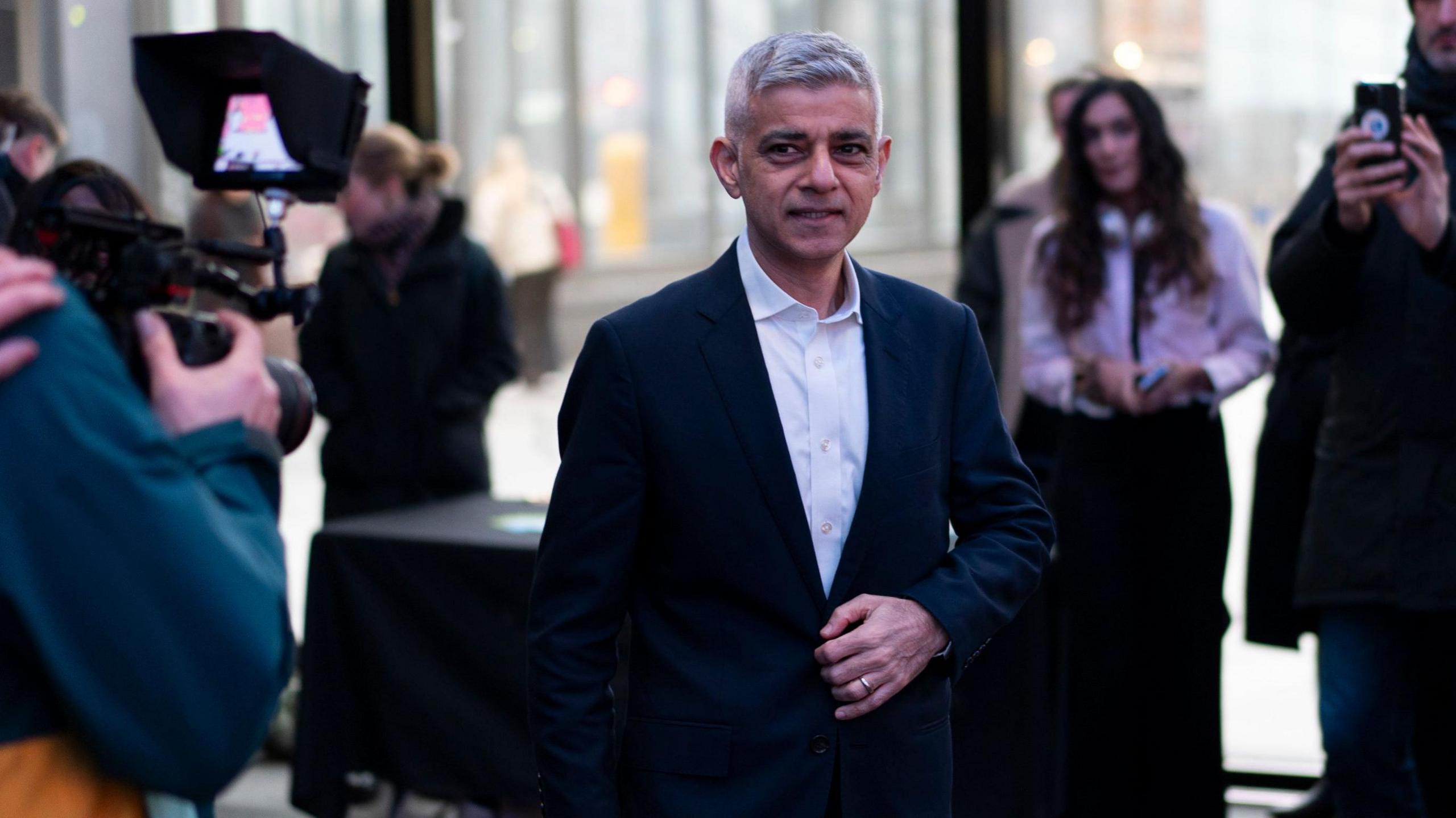
The London mayor says he plans to launch a "preventing homelessness" phoneline
Lord Bailey said "press releases full of fake concern and small sums of money to window dress this issue are not enough".
He added: "Londoners are suffering on the frontline of this, as are the councils who support them - because Khan and the Labour Party won't do enough.
"Dealing with rough sleeping is pushing council budgets into the red across the city as the issue becomes worse and worse."
Emma Haddad, chief executive of homeless charity St Mungo's, said rough sleeping "is a crisis and should not be a prerequisite for help".
She added: "Many of our clients face long-term mental and physical health needs, which can increase the risk of homelessness and make it that much harder for people to get the support they need.
"We're also seeing more people locked out of an increasingly unaffordable private rental sector, exacerbated by poor supply of housing and intense demand for it."
City Hall said the mayor's new strategy would include specialist services that recognise the needs of particular groups of Londoners, such as those who face additional barriers to accessing services due to high support needs or uncertain immigration status.
'Not the first to pledge action'
Analysis by Karl Mercer, BBC London political editor
He may be the latest mayor to promise to end rough sleeping, but Sir Sadiq Khan is not the first.
A year after becoming mayor, as he launched his new London Delivery Board, Boris Johnson had declared: "It's scandalous in the 21st century that people have to resort to sleeping on the streets."
He promised to end rough sleeping in the capital by the time the Olympics were coming in 2012.
He failed, even though he re-visited the issue in his winning 2019 manifesto on the national stage - promising to end rough sleeping by the end of the next parliament.
He failed again.
Sir Sadiq's pledge is to end it by 2030 - promised during his election-winning campaign last year - but promised against statistics that show the problem is actually on the rise.
In 2017-18 - a year after he took over at City Hall - there were around 7,500 rough sleepers annually, prompting the mayor to say a year later that he was "embarrassed and angry" that so many were on the streets.
After rising to a then-high of 11,018 in 2020-21, numbers did fall.
But they have been on the rise for the past two years - and last year reached an all-time high of 11,993.
That, at a time when funding on rough sleepers initiatives has gone up from around £8m to around £45m.
Setting a deadline and targets will certainly focus minds on the issue, but rough sleeping is probably just the most visible sign of London's homelessness problem.
Last week, London's major housing associations told BBC London they're building 66% fewer affordable homes than they were two years ago - blaming high prices, tougher building regulations and the high cost of maintaining their current homes.
A day later the government and the mayor agreed a 22% drop in the target for affordable home building in the capital.
The mayor's focus will be on trying to prevent people ending up on the streets in the first place - but he will know delivering many more homes will also be a key part of any sustainable future plan.
Listen to the best of BBC Radio London on Sounds and follow BBC London on Facebook, external, X, external and Instagram, external. Send your story ideas to hello.bbclondon@bbc.co.uk, external
- Published12 January
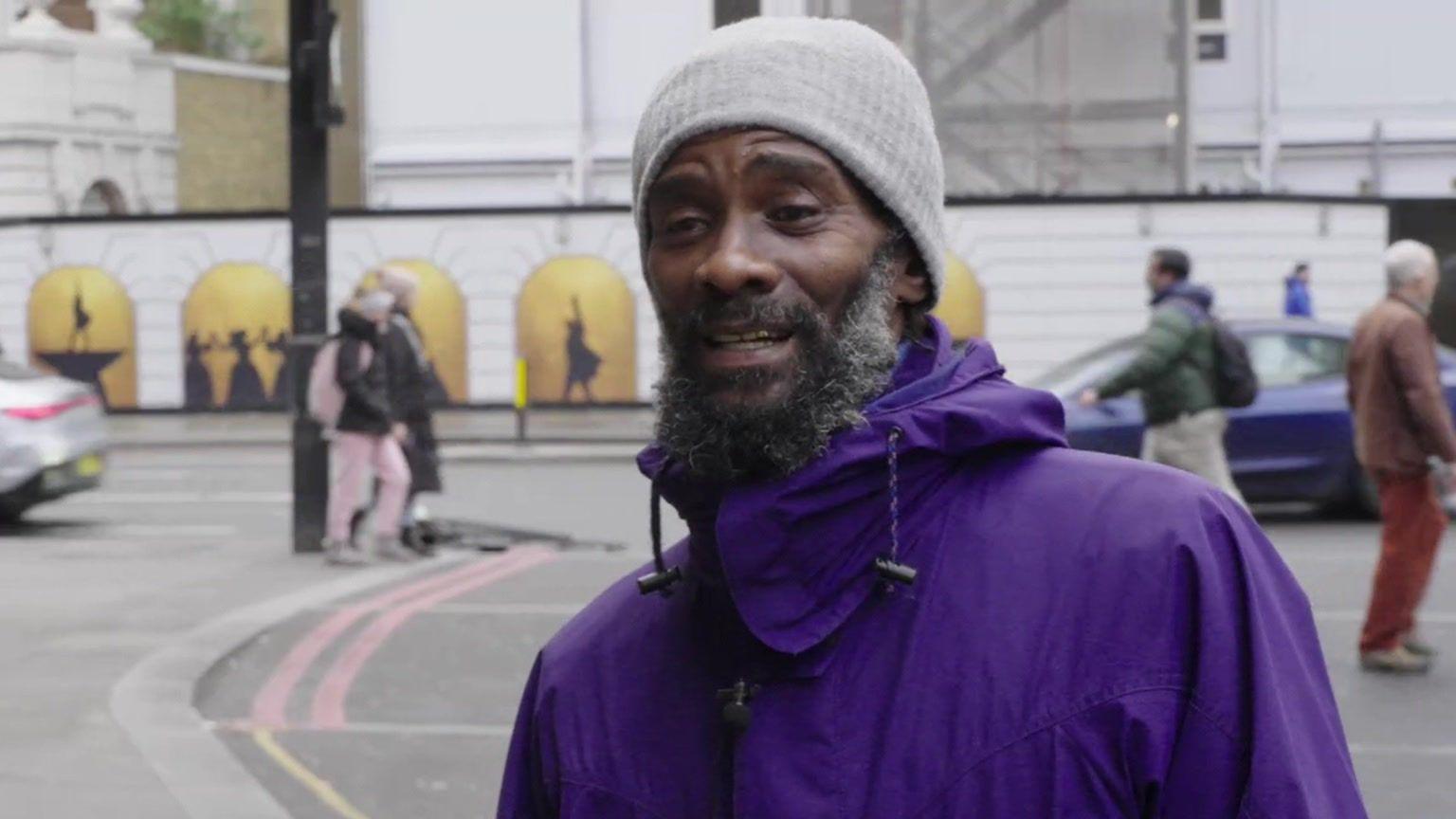
- Published31 January
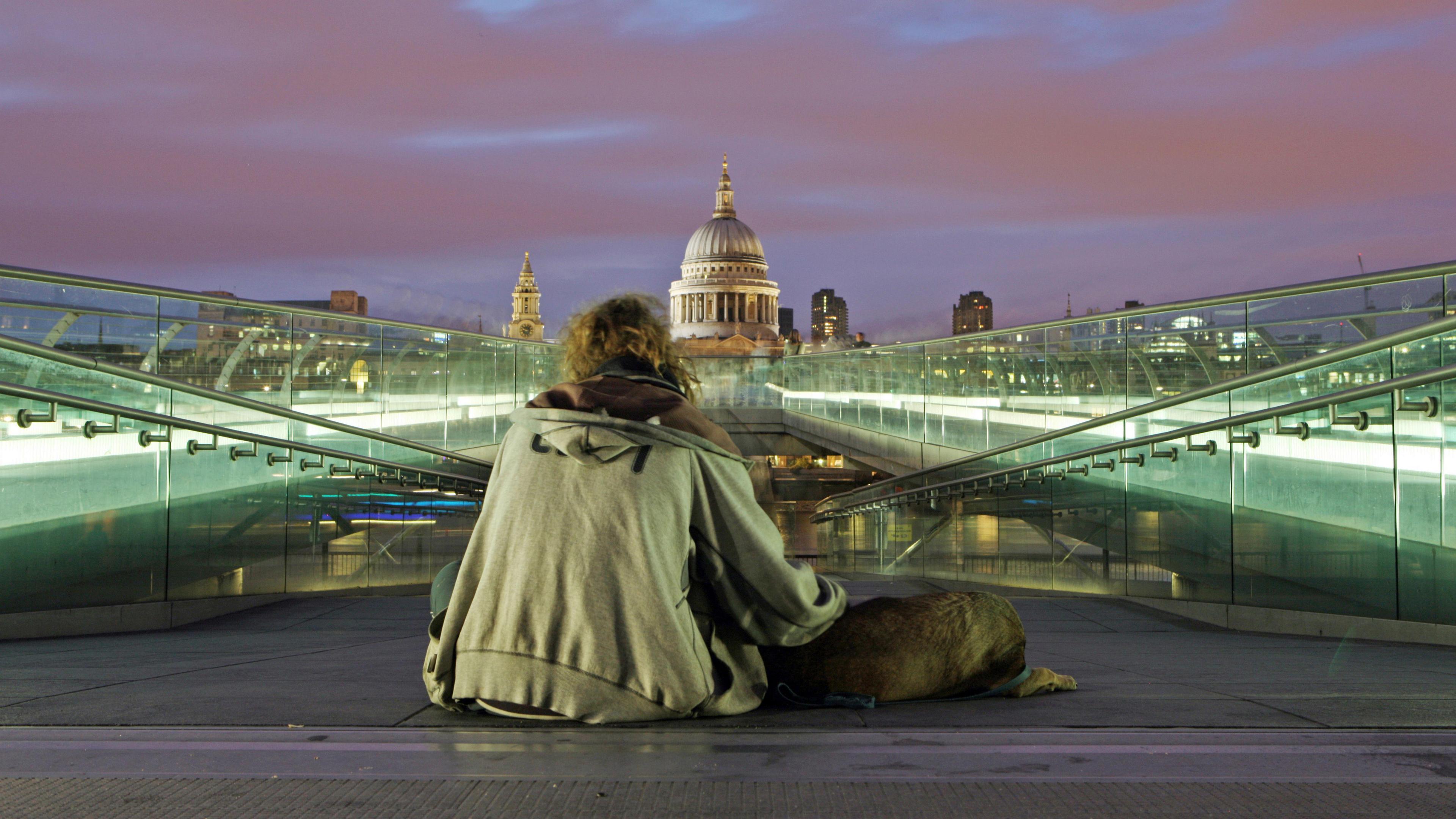
- Published31 October 2024
